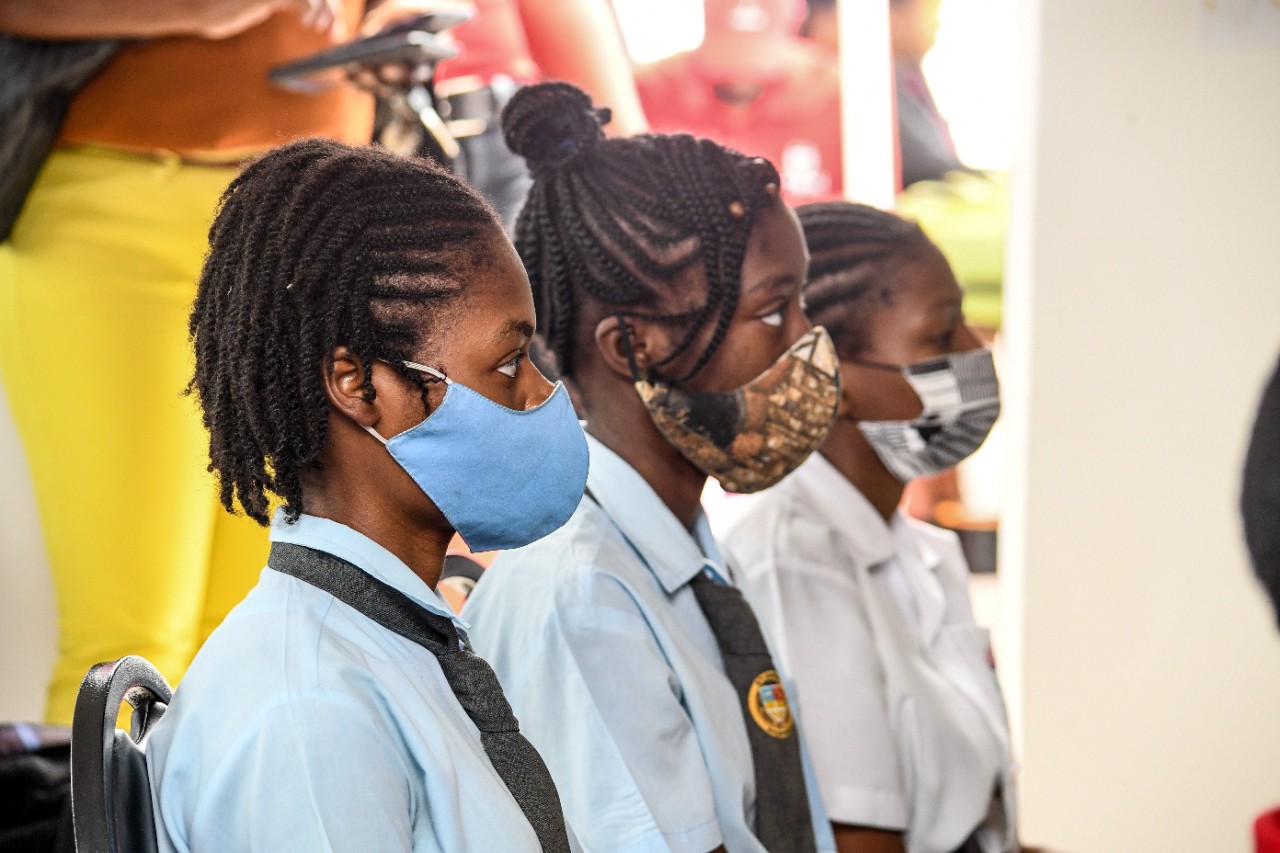Building on successful UNDP partnership, Dominica doubles down on digital transformation
August 6, 2021

“I’ve always dreamt of working online,” says Emily Elizee-Rolle, “with the flexibility of choosing my working hours, being in the comfort of my own home, and to add to it a good wage.” Elizee-Rolle is a freelance customer service professional living in the Commonwealth of Dominica, a small island state in the Eastern Caribbean with a population of just over 70,000.
Today, Elizee-Rolle has realised that dream. “I’m currently employed with a US company, Prestige Labs [a nutritional supplements business based in Texas] for over 10 months,” she announced at a recent event, proudly wearing the company’s t-shirt.
But it was her follow up line that drew applause. “My hard work and dedication to Prestige Labs prompted the manager to hire three other Dominicans. And they went a step further by allowing me to train my fellow Dominicans. It was a huge milestone, in my book.”
Elizee-Rolle was one of the featured speakers at the event launching the second cohort of the Work Online Dominica Programme, co-sponsored by the Dominican government, IsraAID, the Dominica State College, and UNDP. The 12-week programme aims to help Dominicans build professional online identities and access online freelance marketplaces, in order to create new sources of income and increase financial stability. Elizee-Rolle was one of 60 graduates of the programme’s first cohort.
The programme that changed Elizee-Rolle’s life grew out of a critical partnership between the government of Dominica and UNDP. But the Work Online Dominica Programme didn’t just empower Dominicans to create new, more flexible livelihoods; it set the stage for a relationship between the commonwealth and UNDP that stands to benefit thousands more Dominicans. “Work Online Dominica was an entry point for the government to learn more about UNDP’s digital offering and added value,” says Luis Francisco Thais, Head of Office at UNDP Dominica. “The government saw the potential of the initiative, and based on that, they decided they wanted to enhance the scope of their partnership to include technical assistance in advancing Dominica’s digital transformation.”

Realising the potential of digital to create increased economic resilience and social equality, the Government of Dominica volunteered to be one of the first participants in UNDP’s newly launched Digital Readiness Assessment. Prime Minister Skerrit “regularly talks about digital being an essential part of Dominica’s goal of becoming the first climate resilient country in the world,” says Laura Hildebrandt, the Digital Transformation Specialist for Small Island Developing States (SIDS), based in Barbados. “Dominica’s level of public commitment to the digital agenda is exceptional.”
The Digital Readiness Assessment, developed by UNDP’s Chief Digital Office, is an entry point for governments and UNDP Country Offices looking to begin – or continue – the journey of digital transformation. Based on a variety of indicators, including digital literacy rates, relative ISP speeds, the robustness of the startup ecosystem, and leaders’ willingness to engage with digital possibilities, the Assessment produces an interactive dashboard giving a quantitative and qualitative measure of a country’s digital progress. In other words, the Assessment gives leaders a good idea of where to focus policy for digital progress.
The completion of the Assessment has led to several policies and programmes. The government has already conducted an extensive public survey, with the help of UNDP as well as mobile carriers operating in the commonwealth, to gauge how knowledgeable and enthusiastic members of the public are about digital services. What’s more, the Dominican government and UNDP are currently in the collaborative process of developing a National Digital Strategy, drawing on roadshows, consultations, and feedback loops with the private sector, civil society, various government agencies, as well as UN and development workers who attended an initial in-person visioning workshop in July.
In developing the digital strategy, the Dominican government and UNDP hope to ensure that the process of digital transformation is as inclusive as possible. “Through the national digital strategy process,” says Hildebrandt, “the government of Dominica is engaging all stakeholders to define how the country will harness advancements in technology to help to build a more prosperous, sustainable, equitable, and climate resilient future for all."
For her part, Emily Elizee-Rolle has learned first hand the incredible potential of digital – for herself and her country. “The world is moving to a global job market,” she reflects. “The most future-proof skill you can get is the ability to tap into that market, and present your skillset ready to take advantage of opportunities.” If she represents the potential for Dominicans to realise their digital dreams, it seems Dominica is well on its way to a digital future.

 Locations
Locations



